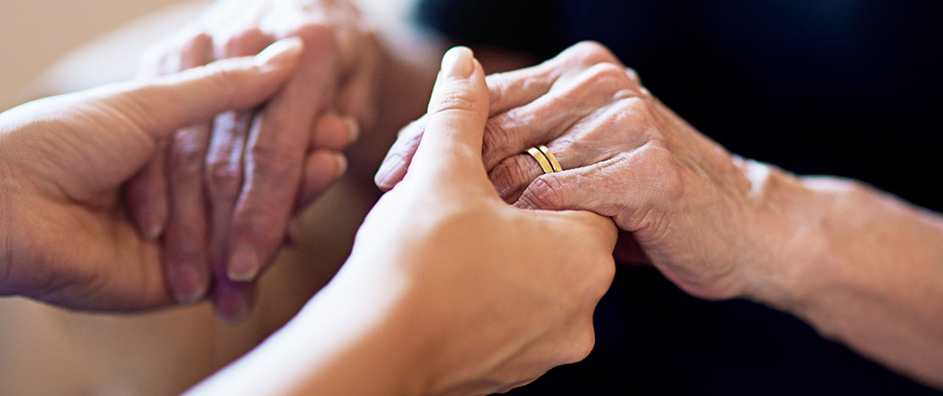Worrying about death is an intrinsic part of the human experience. The inevitability of mortality prompts profound reflection on existence, purpose, and the beyond. The Bahá’í teachings offer a unique perspective on this existential concern, and when coupled with logotherapy—a form of existential psychotherapy—individuals may find a pathway toward greater peace and understanding. This article delves into the intertwining of Bahá’í principles and logotherapy, elucidating their complementary nature in addressing anxieties surrounding death.
At the heart of Bahá’í teachings lies the emphasis on the dual nature of humanity, which encompasses both material and spiritual elements. This duality serves as a foundational concept, influencing the Bahá’í understanding of life, death, and the afterlife. Bahá’ís believe that death is not an end but a transition to a different phase of existence. This perception is fortified by the belief that the soul continues its journey of development and progress in the spiritual realms.
In contemplating death, the Bahá’í writings urge individuals to adopt a broader perspective, viewing life as an opportunity for spiritual growth. The teachings encourage adherents to seek a deeper understanding of life’s purpose and to engage actively in the process of self-improvement. By cultivating virtues and serving others, individuals can prepare their souls for the next stage of existence. This dynamic approach serves as a potent antidote to the paralyzing fear of death, as it encourages a focus on living meaningfully.
Logotherapy, conceived by Viktor Frankl, aligns harmoniously with the Bahá’í worldview. This approach posits that meaning can be derived from suffering, particularly in the face of death. Logotherapy emphasizes the significance of finding personal meaning in life, even amid challenges and existential dilemmas. Its core premise—that the search for meaning is a primary human motivation—resonates with Bahá’í teaching that individuals are endowed with the capacity to reflect on their lives and make purposeful choices.
Combining these two frameworks can yield beneficial insights for those grappling with a fear of death. One approach involves exploring personal values and belief systems in light of Bahá’í principles. For instance, individuals can examine how their actions align with their spiritual convictions, recognizing that fostering a connection with the divine can instill a sense of reassurance about mortality. This self-reflective practice not only enhances personal meaning but also nurtures an understanding of death as an integral aspect of the human experience.
Furthermore, logotherapy provides practical tools that can aid individuals in coping with their fears regarding death. Through techniques such as dereflection, practitioners assist clients in shifting their focus away from avoidant thoughts and onto constructive behaviors. This aligns with the Bahá’í emphasis on service, encouraging individuals to engage with their communities and contribute positively. Service to others can engender a sense of legacy—an enduring impact that transcends physical existence and fosters a sense of continuity.
Another significant aspect of this dialogue between Bahá’í teachings and logotherapy is the notion of interconnectedness. Both frameworks emphasize the importance of relationships and community as vital components of the human experience. Bahá’í teachings advocate for unity among humanity, positing that our collective experiences enrich our understanding of life and death. Logotherapy similarly underscores the value of building relationships, as connectedness can provide essential support during times of existential crisis.
In addition, the concept of acceptance is pivotal in both Bahá’í teachings and logotherapy. Embracing the inevitability of death can liberate individuals from the shackles of anxiety. The Bahá’í perspective teaches that death should be viewed with tranquility rather than trepidation, as it signifies a return to the source of one’s existence. Logotherapy reinforces this perspective by encouraging individuals to confront their fears head-on. This practice of acceptance enables a more profound appreciation of life’s fleeting nature, prompting individuals to live more fully in the present moment.
Central to both frameworks is the transformative power of hope. Bahá’í teachings instill a sense of hope through the belief in the afterlife and the opportunity for eternal progression. This hope fosters resilience, encouraging individuals to navigate life’s challenges with grace. Logotherapy complements this notion by positing that hope is essential for mental health and well-being. Cultivating hope can mitigate despair and illuminate pathways toward a meaningful existence.
In practice, individuals may find that engaging with both Bahá’í teachings and logotherapy leads to a more profound understanding of their relationship with death. They may choose to participate in community discussions centered on spirituality, facilitating an exchange of ideas about the afterlife. Workshops focused on meaning-making can further empower individuals to forge deeper connections with themselves and others, fostering a collective yearning for understanding.
Ultimately, the integration of Bahá’í teachings with logotherapy provides a robust framework for addressing anxieties surrounding death. By exploring the concepts of duality, meaning, interconnectedness, acceptance, and hope, individuals can cultivate a perspective that transcends fear. This harmonious dialogue encourages a life lived with purpose, a belief in the continuity of the soul, and an appreciation for the transformative power of love and service. In embracing these tenets, one may find solace amid life’s inevitable transitions, ultimately realizing that death can be a gateway to deeper fulfillment and understanding.
